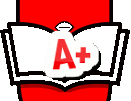Assessment 3 – tech
Assessment 3 – tech
Assessment 3 – tech
Order Description
As per paper guidelines and instructions.
Teaching Period 3, 2014
COM10003 Learning and Communicating Online
Assessment 3: Reflective essay
Word limit: 1500 words (+/- 10%) Weighting: 40%
Due date: 9am (AEDT) Friday 13 February (Week 12)
Assessment overview
This assessment task requires you to write a reflective essay on the topic below, in 1500 words.
All references should be appropriately cited using Harvard or APA style.
Assessment details
Based on your experience in this course, discuss what you have learnt about
finding, using and evaluating online sources for academic communication.
Specifically address the following points:
?
Discuss how your ideas of using online sources of information have developed during the
course and provide examples to demonstrate.
?
Discuss how the development of an informational resource, or your work in the discussion
board, has helped you understand how to evaluate the credibility of online sources in an
academic environment.
?
Identify some of the advantages and limitations of working collaboratively in an online
community and reflect on how you might exploit advantages and overcome the limitations.
Use the literature to support your discussion. Please ensure that you address all of the criteria in
the rubric below.
Assessment criteria
1.
2.
3.
4.
5.
6.
7.
Using online sources of information.
Evaluating the credibility of online sources.
Identifying advantages and limitations of working collaboratively online.
Demonstrated use of the literature to support your discussion.
Structure of essay including introduction, discussion of key points and conclusion.
Appropriate language and expression with attention to correct spelling and grammar.
Referencing in Harvard or APA style.
1
COM10003 Learning and Communicating Online
Your work will be assessed using the following marking guide:
Assessment
criteria
Using online
sources of
information
Not satisfactory
< 50%
Pass
50 – 59%
Credit
60 – 69%
Distinction
70 – 79%
High Distinction
80 – 100%
You have not
discussed how your
ideas about using
online sources for
information have
developed during the
course.
You have sufficiently
discussed how your
ideas about using
online sources for
information have
developed during the
course.
You have clearly
discussed how your
ideas about using
online sources for
information have
developed during the
course.
You have clearly and
comprehensively
discussed how your
ideas about using
online sources for
information have
developed during the
course.
You have clearly and
comprehensively
discussed how your
ideas about using
online sources for
information have
developed during the
course. Your response
is sophisticated and
insightful.
Evaluating the
credibility of
online sources
(20%)
You have not
discussed how the
development of an
informational
resource or your work
in the discussion
board has informed
your understanding
of how to evaluate
the credibility of
online sources in an
academic
environment.
You have sufficiently
discussed how the
development of an
informational resource
or your work in the
discussion board has
informed your
understanding of how
to evaluate the
credibility of online
sources in an academic
environment.
You have clearly
discussed how the
development of an
informational resource
or your work in the
discussion board has
informed your
understanding of how
to evaluate the
credibility of online
sources in an academic
environment.
You have clearly and
comprehensively
discussed how the
development of an
informational
resource or your work
in the discussion
board has informed
your understanding
of how to evaluate
the credibility of
online sources in an
academic
environment.
You have clearly and
comprehensively
discussed how the
development of an
informational
resource or your work
in the discussion
board has informed
your understanding
of how to evaluate
the credibility of
online sources in an
academic
environment. Your
discussion is
sophisticated and
insightful.
Identifying
advantages and
limitations of
working
collaboratively
online
(20%)
You have not
identified the
advantages and
limitations of working
collaboratively online.
You have identified the
advantages and
limitations of working
collaboratively online.
You have clearly
identified the
advantages and
limitations of working
collaboratively online.
You have reflected on
how to exploit the
advantages and
overcome the
limitations.
You have clearly and
comprehensively
identified the
advantages and
limitations of working
collaboratively online.
You have clearly
reflected on how to
exploit the
advantages and
overcome the
limitations.
You have clearly and
comprehensively
identified the
advantages and
limitations of working
collaboratively online.
You have clearly
reflected on how to
exploit the
advantages and
overcome the
limitations. Your
discussion is
sophisticated and
insightful.
Demonstrated
use of the
literature to
support your
discussion
(20%)
You have not used
literature to support
your discussion.
You have used some
relevant literature to
support your
discussion.
You have demonstrated
effective use of
relevant literature to
support your
discussion.
You have
demonstrated highly
effective use of
relevant literature to
support your
discussion.
You have
demonstrated
outstanding and
highly effective use of
literature to support
your discussion. You
have also shown
evidence of additional
research.
(20%)
2
COM10003 Learning and Communicating Online
Structure of essay
including
introduction,
discussion of key
points and
conclusion
(10%)
You have not
provided a clear
structure.
You have provided a
clear structure.
You have provided a
clear structure with a
logical flow throughout.
You have provided a
clear structure with a
logical flow
throughout and a
well- developed
introduction and
conclusion.
You have provided a
clear structure with a
logical flow
throughout and a
sophisticated
introduction and
conclusion.
Spelling and
grammar
(5%)
There are a number
of spelling errors
and/or problems with
grammar.
There are some spelling
errors and/or problems
with grammar.
The writing is mostly
free of spelling errors
and/or problems with
grammar
There are very few
spelling errors or
problems with
grammar.
The work is free from
any spelling errors or
problems with
grammar.
Referencing (APA
or Harvard style)
(5%)
External sources are
not acknowledged.
External sources are
acknowledged but
incorrectly referenced.
An author/date system
of referencing has been
used however closer
adherence to the
Harvard or APA style is
required.
External sources are
generally referenced
correctly (according
to the APA or Harvard
style guide) with
minor errors in
formatting or the use
of punctuation.
All external sources
are referenced
correctly (according
to the APA or Harvard
style guide).
3
COM10003 Learning and Communicating Online
Week 11
In some ways, the metaphor of a ‘journey’ serves us well to visualise our trajectory through this unit. Keep in mind that some of us will have started this journey
with more knowledge about operating online than others, so the important thing to remember is not necessarily where you are on the journey, but how far you have come.
This week’s activity will give the you opportunity to think more about this journey, but for now, let’s focus on what we have learnt in the terms of ‘life-long
learning’. The idea of ‘life-long learning’ is now broadly embraced as educational policy, with an understanding that, unlike some journeys, the journey of life-long
learning has no fixed destination. Theories and definitions abound, but here are two good examples:
Lifelong learning is far broader than the provision of second-chance education and training for adults. It is based on the view that everyone should be able,
motivated, and actively encouraged to learn throughout life. This view of learning embraces individual and social development of all kinds and in all settings:
formally, in schools, vocational, tertiary and adult education institutions; and nonformally, at home, at work and in the community.
The Organisation for Economic Co-operation and Development (OECD), 1997
Lifelong learning is the development of human potential through a continuously supportive process which stimulates and empowers individuals to acquire all the
knowledge, values, skills and understanding they will require throughout their lifetimes and to apply them with confidence, creativity and enjoyment in all roles,
circumstances, and environments.
Longworth and Davies (1996, p. 22)
In the online environment the opportunities to own and control your learning process have been increased. The natural inclination is to assume that this is a good
thing… isn’t it? Well, it is, but as we learnt in weeks 7 and 8, the key to effective learning is ensuring that your information literacy skills are sharply honed.
During the course of this unit, we’ve been trying to help you to understand your role as a consumer, sharer, and producer of knowledge in the online world. By now, you
should be better at knowing what makes a good and credible source on the internet, and how you can be a reliable contributor to knowledge. This week is all about
reflecting on what you’ve been learning, and your activity focuses on this in relation to your final assessment.
Activities/Assessment
This week’s activity is designed to help you along the way with the third and final assessment item. It will help you identify your strengths and weaknesses, while
encouraging you to engage with your Learning Group members to share, compare and resolve any issues leading up to the assessment.
Summary of this week’s readings
A reference list (APA) (Harvard) is provided at the end of the weekly learning materials. The correct referencing style should be used to promote your skills in
academic citation. This is particularly important in each of your assessments.
First things first – congratulations on reaching the end of COM10003! We hope that the unit has been enriching, and serves you well as you embark on your learning
journey.
No doubt you’re busy getting your reflective essay ready for submission, and you’ll be wanting to focus on that. Nevertheless, now is a good opportunity to use this
time of reflection to think about what you have learnt and how it is applicable to our ongoing studies… and beyond!
Finally, to get you thinking about the future – your future – watch Navigating our global future (TED, 2013), which contains some very interesting ideas.
Navigating our global future – Ian Goldin, TED-Ed (2013) <http://tinyurl.com/o9mcerx>
Activities/Assessment
This week’s activities are designed to make you think about what your learning future holds, and how what you have picked up along the way in COM10003 can help. We
appreciate that you’re busy, so it won’t be anything too arduous!
Summary of this week’s readings
A reference list (APA) (Harvard) is provided at the end of the weekly learning materials. The correct referencing style should be used to promote your skills in
academic citation. This is particularly important in each of your assessments










